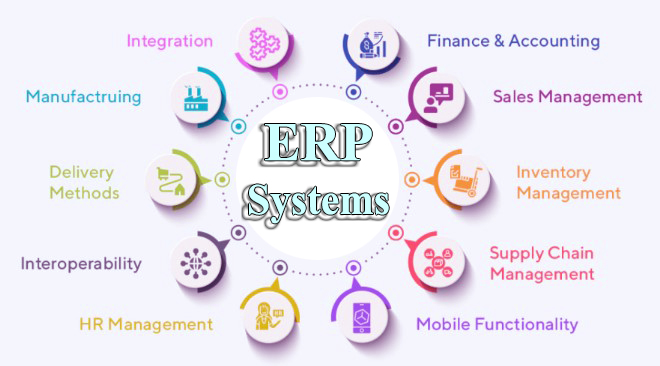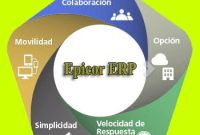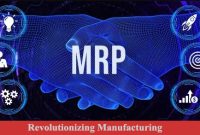The Ultimate Guide to ERP Systems: Revolutionizing Business Operations
In today’s dynamic and competitive business environment, efficiency and streamlined processes are essential for success. One of the most powerful tools that businesses can leverage to achieve these goals is an Enterprise Resource Planning (ERP) system. This comprehensive guide will explore what an ERP system is, its key features, benefits, implementation strategies, and future trends, providing you with a thorough understanding of how ERP systems can revolutionize business operations.
What is an ERP System?
An Enterprise Resource Planning (ERP) system is a type of software that integrates various business processes and functions into a single unified system. This integration allows for seamless data flow and improved communication across different departments within an organization, from finance and human resources to supply chain management and customer relationship management. By consolidating data and processes, ERP systems enable businesses to operate more efficiently and make informed decisions based on real-time information.
Key Features of an ERP System
- Comprehensive Integration: ERP systems integrate multiple business processes into one cohesive system, eliminating data silos and enhancing cross-departmental collaboration. This integration ensures that all departments have access to consistent and accurate information.
- Real-Time Data Processing: One of the standout features of ERP systems is their ability to process data in real-time. This capability allows businesses to respond quickly to changing conditions, make informed decisions promptly, and improve overall agility.
- Scalability: ERP systems are designed to scale with your business. Whether you are a small startup or a large enterprise, ERP systems can accommodate growth, handle increased data volumes, and support additional users without compromising performance.
- Customization: ERP systems offer extensive customization options, allowing businesses to tailor the software to their specific needs. This flexibility ensures that the system can adapt to unique business processes and industry requirements.
- Advanced Analytics and Reporting: ERP systems come equipped with powerful analytics and reporting tools. These tools provide deep insights into business performance, help track key performance indicators (KPIs), and support data-driven decision-making.
- Robust Security: Security is a critical component of ERP systems. Advanced security features, such as user authentication, role-based access control, and data encryption, protect sensitive business information from unauthorized access and breaches.
Benefits of Implementing an ERP System
- Increased Efficiency: By automating routine tasks and integrating various business functions, ERP systems significantly improve operational efficiency. Employees can focus on more strategic activities, leading to higher productivity and reduced operational costs.
- Enhanced Collaboration: ERP systems foster collaboration across departments by providing a single source of truth. This unified access to information enhances communication and teamwork, leading to better decision-making and problem-solving.
- Better Decision-Making: With real-time data processing and advanced analytics, ERP systems provide valuable insights that support informed decision-making. Businesses can quickly respond to market changes, optimize processes, and identify new opportunities.
- Regulatory Compliance: ERP systems help businesses stay compliant with industry regulations and standards. Built-in compliance checks and risk management features ensure adherence to legal requirements and reduce the risk of non-compliance.
- Cost Savings: While the initial investment in an ERP system can be significant, the long-term cost savings are substantial. Improved efficiency, reduced errors, and optimized resource allocation contribute to lower operational costs and higher profitability.
Implementation Considerations
- Clear Objectives and Requirements: Before starting the implementation, it’s essential to define clear objectives and requirements. Understanding what you aim to achieve with an ERP system and how the software will support your business goals is crucial.
- Choosing the Right ERP Vendor: Selecting the right ERP vendor is critical for success. Look for a vendor with extensive experience in your industry, a proven track record of successful implementations, and robust customer support. Evaluate different ERP solutions to find the one that best fits your needs.
- Effective Project Management: Effective project management is vital for a successful ERP implementation. Assign a dedicated project manager to oversee the implementation, manage timelines, and coordinate with various stakeholders.
- Data Migration: Data migration is a critical step in the implementation process. Ensure that your data is clean, accurate, and well-organized before migrating it to the new system. Data quality issues can lead to significant problems down the line.
- Employee Training and Change Management: Comprehensive employee training and effective change management are essential components of a successful implementation. Provide thorough training to ensure that employees are comfortable using the new system. Additionally, manage the change process to address any resistance and ensure a smooth transition.
- Testing and Quality Assurance: Thorough testing is necessary to identify and address any issues before going live. Conduct various tests, including unit testing, integration testing, and user acceptance testing, to ensure that the system functions as expected.
- Post-Implementation Support: Post-implementation support is crucial to address any issues that arise after the system goes live. Ensure that you have a support plan in place to provide ongoing assistance and maintenance.
Real-World Applications of ERP Systems
- Manufacturing: ERP systems are widely used in the manufacturing industry to streamline production processes, manage supply chains, and optimize inventory levels. Real-time data processing helps manufacturers respond to demand fluctuations and improve overall efficiency.
- Retail: In the retail industry, ERP systems support inventory management, sales tracking, and customer relationship management. The software helps retailers enhance the customer experience, optimize stock levels, and improve sales performance.
- Healthcare: Healthcare organizations use ERP systems to manage patient records, streamline administrative processes, and ensure compliance with regulations. The systems improve patient care by providing healthcare professionals with quick access to accurate information.
- Finance: ERP systems are valuable tools for financial institutions, providing robust financial management capabilities, including accounting, budgeting, and financial reporting. The systems help financial institutions ensure compliance and improve financial performance.
- Public Sector: Government agencies use ERP systems to manage public services, streamline administrative processes, and enhance transparency. The systems support budgeting, procurement, and human resource management, contributing to more efficient public service delivery.
Future Trends in ERP Systems
- Cloud-Based ERP: Cloud-based ERP solutions are becoming increasingly popular due to their flexibility, scalability, and cost-effectiveness. Businesses can access their ERP systems from anywhere, allowing for greater mobility and collaboration.
- Artificial Intelligence and Machine Learning: AI and machine learning are transforming ERP systems by providing advanced analytics, predictive insights, and automation capabilities. These technologies help businesses make smarter decisions and automate complex processes.
- IoT Integration: The Internet of Things (IoT) is enabling ERP systems to collect and analyze data from connected devices, providing real-time insights into operations and enhancing efficiency.
- Mobile ERP: Mobile ERP solutions are gaining traction, allowing employees to access and manage business processes from their mobile devices. This mobility enhances productivity and enables faster decision-making.
- Enhanced User Experience: Modern ERP systems are focusing on improving the user experience with intuitive interfaces, personalized dashboards, and user-friendly designs. These enhancements make ERP systems more accessible and easier to use.
Conclusion
ERP systems are powerful tools that can transform business operations, improve efficiency, and support growth. By integrating various business processes, providing real-time insights, and offering extensive customization options, ERP systems help businesses stay competitive in a rapidly changing market. However, successful implementation requires careful planning, effective project management, and ongoing support. By understanding the key features, benefits, and implementation considerations, businesses can harness the full potential of ERP systems and achieve their strategic goals.
Whether you are a small business looking to streamline operations or a large enterprise seeking to enhance efficiency and competitiveness, an ERP system offers a comprehensive solution to meet your needs. Embrace the power of ERP systems and unlock your business’s potential for greater success and growth.




